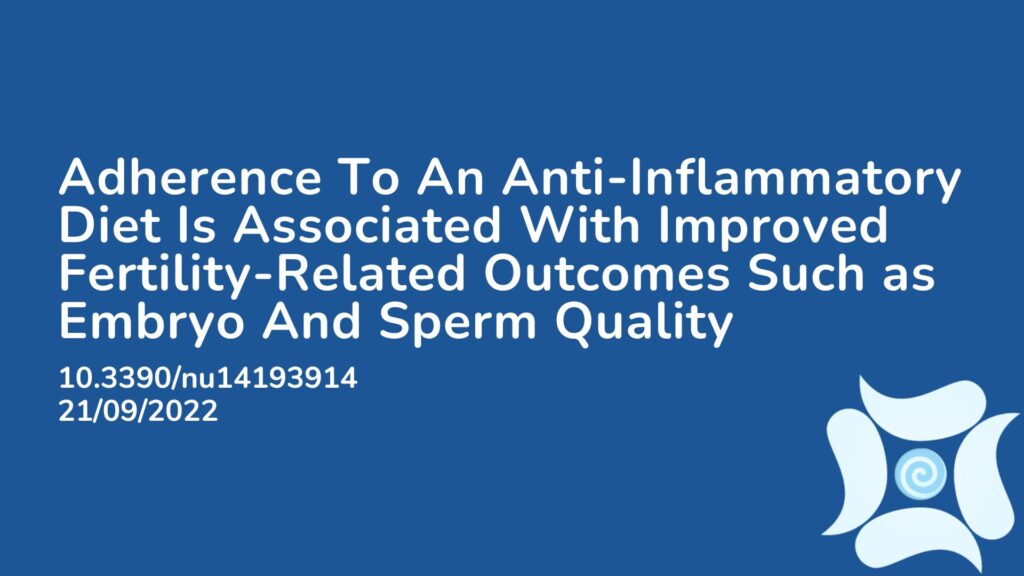Summary:
Infertility is defined as an inability to conceive after more than one year of unprotected sexual intercourse. Infertility is a major global health concern that impacts 48 million couples worldwide. Lifestyle-related risk factors such as obesity, stress and a poor diet have been shown to negatively impact fertility. Since these risk factors are highly modifiable, identifying affordable and non-invasive strategies which can potentially improve fertility outcomes is critically important. Literature has shown that anti-inflammatory diets for both men and women during the preconception period may contribute to better fertility outcomes, however the role of an anti-inflammatory diet in promoting fertility has not been established. The aim of this evidence review was to collate the evidence currently available on anti-inflammatory dietary patterns and fertility. The summary of evidence showed that adherence to an anti-inflammatory diet is generally associated with improved fertility-related outcomes such as embryo and sperm quality. Whilst there is not yet enough evidence to definitively state that an anti-inflammatory diet will improve fertility outcomes, following a healthy diet has no risks involved, yet a plethora of benefits. Furthermore, the results showed that an anti-inflammatory diet may improve the efficacy of other infertility interventions or reduce the need for other unwarranted pharmacological interventions.
Abstract:
Infertility is a global health concern affecting 48 million couples and 186 million individuals worldwide. Infertility creates a significant economic and social burden for couples who wish to conceive and has been associated with suboptimal lifestyle factors, including poor diet and physical inactivity. Modifying preconception nutrition to better adhere with Food-Based Dietary Guidelines (FBDGs) is a non-invasive and potentially effective means for improving fertility outcomes. While several dietary patterns have been associated with fertility outcomes, the mechanistic links between diet and infertility remain unclear. A key mechanism outlined in the literature relates to the adverse effects of inflammation on fertility, potentially contributing to irregular menstrual cyclicity, implantation failure, and other negative reproductive sequelae. Therefore, dietary interventions which act to reduce inflammation may improve fertility outcomes. This review consistently shows that adherence to anti-inflammatory diets such as the Mediterranean diet (specifically, increased intake of monounsaturated and n-3 polyunsaturated fatty acids, flavonoids, and reduced intake of red and processed meat) improves fertility, assisted reproductive technology (ART) success, and sperm quality in men. Therefore, integration of anti-inflammatory dietary patterns as low-risk adjunctive fertility treatments may improve fertility partially or fully and reduce the need for prolonged or intensive pharmacological or surgical interventions.
Article Publication Date: 21/09/2022
DOI: 10.3390/nu14193914



